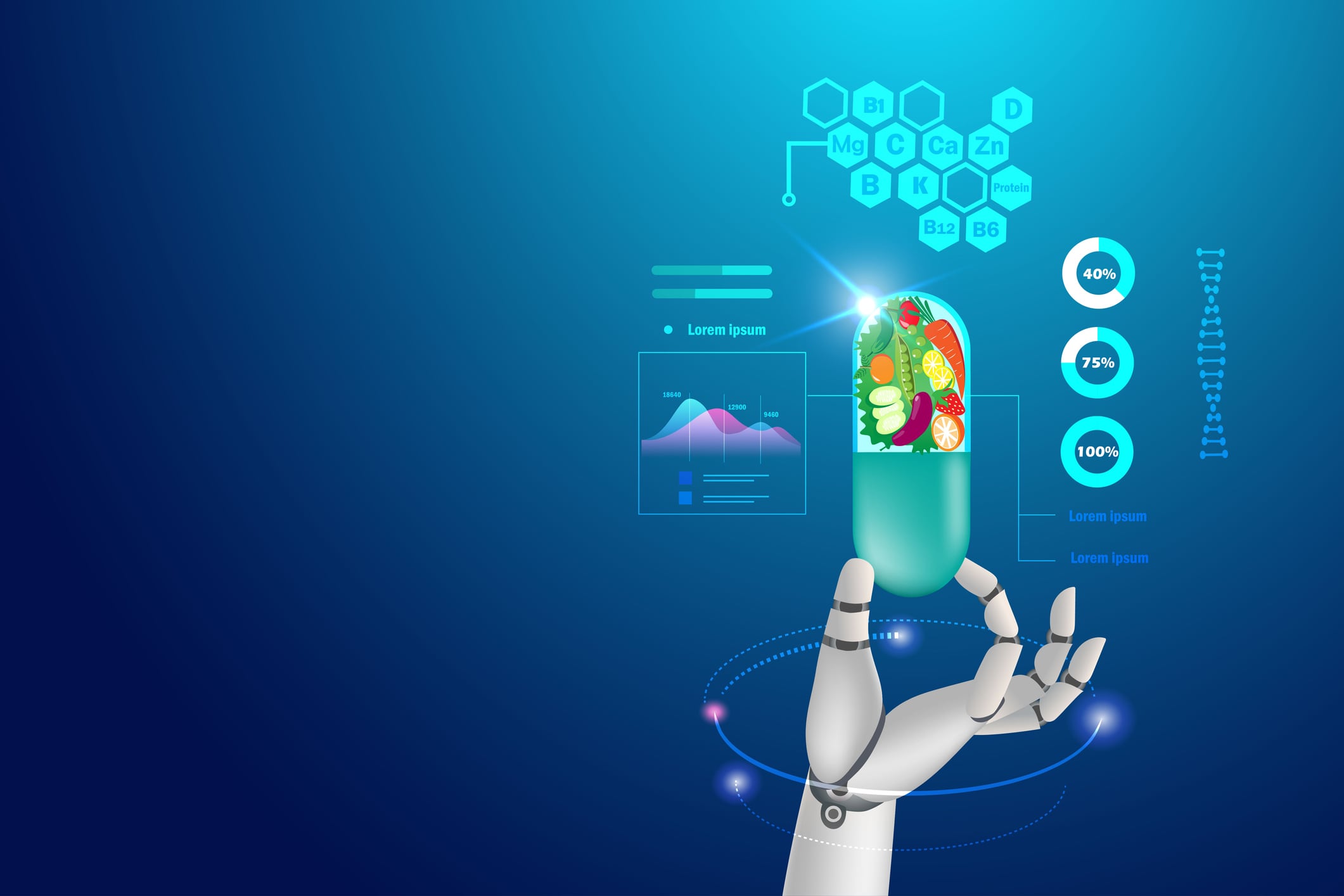Biomdrin is a spin-off company of the plant-based collagen firm VeCollal, offering a tool containing data on over 70,000 ingredients to identify the best solutions to prevent diseases and health conditions.
Co-founder Tony Van Campen says the tool cuts a process which could take years, down to a matter of days, with more scientifically sound results.
“It looks at millions of interactions between diseases, genes, and the human proteome but it also looks in global databases on known interactions with nutraceuticals or botanical extracts and creates insights by noting connections which would be impossible for a human or a team of people to see,” he explains.
The brainchild of biomaterials scientist and co-founder Dr Josué Jiménez Vázquez, the tool can produce initial formulation suggestions for in vitro testing, and will then improve the finished formula based on the results.
Van Campen says the tool will essentially ensure clinical validity right from the start, therefore removing the need to develop formulations for testing, only to find they don’t have an effect.
“We believe at its full force, it could take away the need for in vitro testing, and it will make chances of success in clinical trials very high.”
It’s the potential scientific rigour of future products that excites Van Campen.
“Ultimately, nutraceuticals without science behind them are what give this market a bad image.
“Imagine a future in which every supplement sold has an impact on health – what a difference that would make to consumer trust in the market.”
The founding team believes the tool can be best utilised to create supplements to reduce the burden of age-related diseases, such as diabetes, Obesity and Alzheimer’s.
“These diseases are caused by the degradation of organs and this technology can be used to understand that process and propose new products,” explains Van Campen.
The user of the tool can either start the process with a disease they want to prevent or with an ingredient they want to use – it can either suggest ingredients which impact the health target or it can reveal the potential health targets of a specified ingredient.
Proof of concept
The tool was used in the development of the plant-based ingredient Vecollal, a ‘biomimetic’ of human collagen type 1, which was launched at the start of 2022.
Type 1 collagen is the most abundant protein in the human body and is defined by its unique amino acid profile. It is predominantly found in connective tissues including skin, tendon and bone tissue and so traditional collagen supplements are sourced from beef, fish and pig skin.
But with consumers increasingly on the search for plant-based products, Van Campen joined forces with Dr Jiménez, who had been involved in researching artificial skin, heart tissue and pancreas tissue, to develop a plant-based solution.
Dr Jiménez explains he used the tool to analyse the amino acid profile of type one collagen and the genes that specifically induce the production of type one collagen in the skin and formulated a combination of plant based amino acids alongside active biomolecules of medicinal plants to genetically induce the synthesis of new collagen.
Van Campen also notes there are significant differences between the amino acid profile of human type 1 collagen and commercially available animal-based collagen supplements. Whereas he says VeCollal offers a profile identical to human type 1 collagen.
The team has just completed clinical testing of this product with positive results, due to be published soon.
The team has additionally utilised the AI tool to develop a nutraceutical prototype combining amino acids, vitamins and botanical ingredients, aimed at preventing obesity.
But ultimately the team is interested in making a far-reaching impact through ongoing partnerships with other manufacturers.
“It’s not a tool that we want to keep to ourselves," says Van Campen, "we believe it can help the industry to achieve the next level of professionalism and efficacy in the nutraceuticals market.
“We can work with companies to develop new solutions and to continue improving products as the AI gets stronger.”
They can see particularly exciting opportunities in the personalised nutrition sector.
Van Campen explains: “The tool can read someone’s genetic profiles and create nutraceuticals for the individual based on their genetics – so it can create genuinely personalised supplements.”
He concludes that many in the industry are nervous about the pace of technological evolution and AI taking over aspects of work but he is embracing the change.
“I know a lot of people are quite nervous about AI at the moment but I think it’s the future and the future is here today and we are excited to be a part of it.”


